Menopause is a normal part of the aging process that all women will experience within their lifetimes. (3) Most often occurring naturally, menopause typically lasts for several years, with women experiencing menopause for up to 40% of their lives. (10)(14) The average age of menopause onset is between 45 and 52 years old, with two-thirds of women experiencing at least some of the associated symptoms. (3)(7). Fortunately, decades of research have allowed us to better understand menopause, the symptoms associated with it, and how to treat them, greatly improving the overall quality of life for women as they age.
The menopause transition is identified by the absence of a menstrual period (amenorrhea) for 12 consecutive months, which marks the end of the reproductive years. (10)(11)(14)
There is no specific test to determine when a woman’s last period will be or when menopause symptoms will stop. (10) While the onset of menopause typically occurs after the age of 45, women can enter menopause earlier in life. Premature menopause, or early menopause, occurs when a woman enters menopause before the age of 40, and can be a result of a variety of reasons, including:
- Lower BMI
- Nulliparity (has not previously given birth to term)
- Smoking
- Surgical menopause due to hysterectomy (removal of the uterus) or oophorectomy (removal of ovaries)
- Use of levonorgestrel intrauterine device (IUD) (10)(11)(14)

Factors affecting menopause
By the year 2030, there will be over one billion women worldwide entering one of the stages of menopause, with 85% experiencing psychological and/or physical symptoms. The type and severity of symptoms experienced can vary based on the following factors:
- Activity level
- BMI
- Ethnicity
- Geographic location
- History of anxiety and depression
- Medications
- Previous/current illnesses
- Smoking
Vasomotor symptoms
The most common and recognized symptoms during menopause are vasomotor symptoms, believed to be a result of low estrogen and other hormonal fluctuations. These symptoms include hot flashes and night sweats, which tend to affect around 60 to 80% of menopausal women. (4)(14) Vasomotor symptoms can significantly affect quality of life due to their irregularity and sudden onset, which can disrupt sleep, work, and social events. Sleep disturbances caused by vasomotor symptoms account for up to 60% of complaints reported by menopausal women. (11)
The disruption to daily life caused by vasomotor symptoms can also impact mood and cognitive function, such as attention and memory. (11) Vasomotor symptoms can continue throughout all stages of menopause, lasting for up to thirteen years with various intensities. (14)
Night sweats are hot flashes that occur during the night, often disturbing sleep. (14) The average body temperature needed to induce sweating appears to be lowered during menopause, so lower temperatures can cause perspiration. (4)
There are a variety of risk factors that can impact the frequency and severity of hot flashes and night sweats, including:
- Genetic predisposition
- History of anxiety
- Intake of alcohol, hot beverages, and spicy or hot foods
- Medications
- Stress
- Warm environments (4)
The following recommendations may help prevent and manage vasomotor symptoms:
- Dress in layers
- Keep a clean and dry pair of clothes nearby
- Keep a fan nearby
- Maintain cool room temperatures
- Use self-cooling gel pillows (10)

Talk to your healthcare provider to discuss what menopausal symptom treatment options are best suited for you.
Fueling for Menopause
Adapting your diet to work with your changing physiology during menopause is important for general health and performance. As the sex hormones fluctuate, decline, and eventually flatline, your metabolism changes dramatically. Working one-on-one with a dietitian is the best way to get personalized advice to meet your specific needs.
These are some baseline macronutrient guidelines to keep your body fueled. Use this as a general reference point to get a general idea of your ideal intake. In general, eating a little less carbohydrate and a little more protein and fat is optimal.
CHO- 2-3.5 g/kg
PRO- 1.8-2.4 g/kg
FAT- 1-1.3 g/kg
It’s important to balance your macronutrients throughout the day, especially protein. Your body responds best to a more even protein distribution throughout the day. Aim for at least 30 grams of protein each meal and 20 grams with your snacks. For best recovery, consume 30-40 grams of protein within 30 minutes post workout or race.
High protein foods include:
Salmon 25g/4oz Cottage Cheese 15g/1 C
Chicken 24g/4oz Greek Yogurt 12g/1 C
Shrimp 23g/4 oz Sunflower seeds 5g/1oz
Peanut Butter 7g/2 T Walnuts 4g/1oz
Eggs 6 g/1 large Beans 15g/Cup
Protein powders are convenient but real food is best. Protein powders can be expensive, and some are high in sugar and fillers. If you do use a protein powder, whey isolate is the best for bioavailability. The recommended vegan alternative is pea protein isolate due to the leucine content.
Leucine is known as the “trigger” amino acid for muscle growth. Leucine, isoleucine, and valine make up about one third of your muscle tissue. Menopausal changes and high intensity exercise can be catabolic. Consuming leucine after workouts can aid in muscle repair and recovery. In general, there are 3-4 grams leucine in 35-40 gms whole protein. Good protein sources of leucine include chicken, legumes, beans, salmon, brown rice, beef, tuna, firm tofu, milk, chia and flax seeds and eggs.
The quality of carbohydrates is essential. Meeting your carb needs with whole grains and starchy vegetables provides fiber, maintains a beneficial gut microbiome, helps manage blood sugars, and supports hormones. Excellent sources of starchy carbohydrates include winter squash, root vegetables like sweet potatoes, parsnips, and beets. These are excellent substitutions for breads and pastas because they are rich in fiber and phytonutrients.
Consuming a balanced diet rich in healthy fats is particularly important for hormonal health. Studies indicate that consuming healthy fats, such as avocado, nuts, seeds, and olive oil, can help reduce insulin resistance and stimulate the production of appetite-controlling hormones. (12)(40)
Nutrient Timing
As important as what we eat is how we eat. Nutrient timing is an important part of the equation as your body adapts to the stress of exercise. Poor nutrient timing can blunt exercise benefits, change hormones, and disrupt sleep. Going into workouts under fueled or fasted creates more stress and undermines exercise progress. Pre-workout snacks don’t have to be complicated, just a mix of protein and carbohydrate.
Snack ideas for before/after a workout: Nuts, dried fruit, Greek yogurt with granola, cottage cheese, chicken and vegetables, grilled chicken salad, banana with peanut butter, salmon with brown rice, or vegetables with quinoa.
Post-workout meals/snacks are especially important because the body is most receptive to restoring glycogen stores and repairing the muscle damage within approximately 30 minutes of a workout or race. Menopausal women finish hard workouts with high cortisol levels and are in a catabolic state of muscle breakdown. Eating proper recovery foods within 30 minutes of a stressful exercise session pulls the body out of a breakdown state, lowers cortisol, and stimulates the repair process.
Supplements for symptom support
Approximately 50 to 75% of women in the United States have used a natural health product to help alleviate menopausal symptoms. (14) The popularity of natural health product use tends to be the highest among peri- and postmenopausal women. While there are a variety of popular supplements used to help address the symptoms of menopause, more evidence is needed to demonstrate their efficacy, safety, or both. (3)
Black cohosh
Black cohosh is a highly researched herbal supplement used for menopause symptoms. This medicinal herb is believed to have estrogenic effects, however, there is currently a lack of research to support this claim. Research does suggest that it may help to alleviate hot flashes and mood disturbances due to its effect on serotonin receptors. In a randomized controlled trial (RCT) of 62 menopausal women conducted over a period of three months, black cohosh supplementation resulted in a significant improvement in menopausal symptoms. (3)
Black cohosh is not safe to use for pregnant or lactating women. Potential side effects of using black cohosh can include dizziness, headaches, and mild digestive issues. (3)
St. John’s wort
St. John’s wort may be an effective treatment option for women experiencing mild depression as a result of menopause. St. John’s Wort has been shown to have similar benefits to anti-depressants and better results than placebos in the majority of clinical trials. (1)(3) In a clinical trial of 911 women in various stages of menopause, improvements in menopausal symptoms such as minor depression, mood, and insomnia, were observed when combining St. John’s wort with black cohosh. There are minimal side effects associated with its use, however, it’s important to note that this medicinal herb has the potential to interact with various pharmaceutical medications, including oral contraceptive medications. (3)

Mental health interventions such as support groups may be beneficial in helping women adapt to the symptoms and changes that come with menopause.
Mental health support
In addition to traditional hormone therapy and supportive dietary supplements, women going through menopause may benefit from specific mental health interventions, such as Cognitive Behavioral Therapy (CBT), Biofeedback and Relaxation Training, and awareness and support groups. These options can help women be better equipped to handle and adapt to the symptoms and changes experienced during the menopause transition, resulting in a more positive outlook on menopause and aging. (9)
The Bottom Line
Menopause is a normal part of aging. It is important to stay informed and educate yourself on the signs, symptoms, and what to expect. Talk to your healthcare practitioner who can help you determine the best and safest treatment options for you.
About the Author:
Christine Zimmerman MPH RDN CDCES is the TEC team Dietitian/Nutritionist as well as an Intuitive Eating Counselor. She works to encourage athletes and non-athletes alike on their journey of wellness, developing a peaceful and satisfying relationship with food, their bodies, and movement. To schedule your Nutrition Consultation click HERE.



